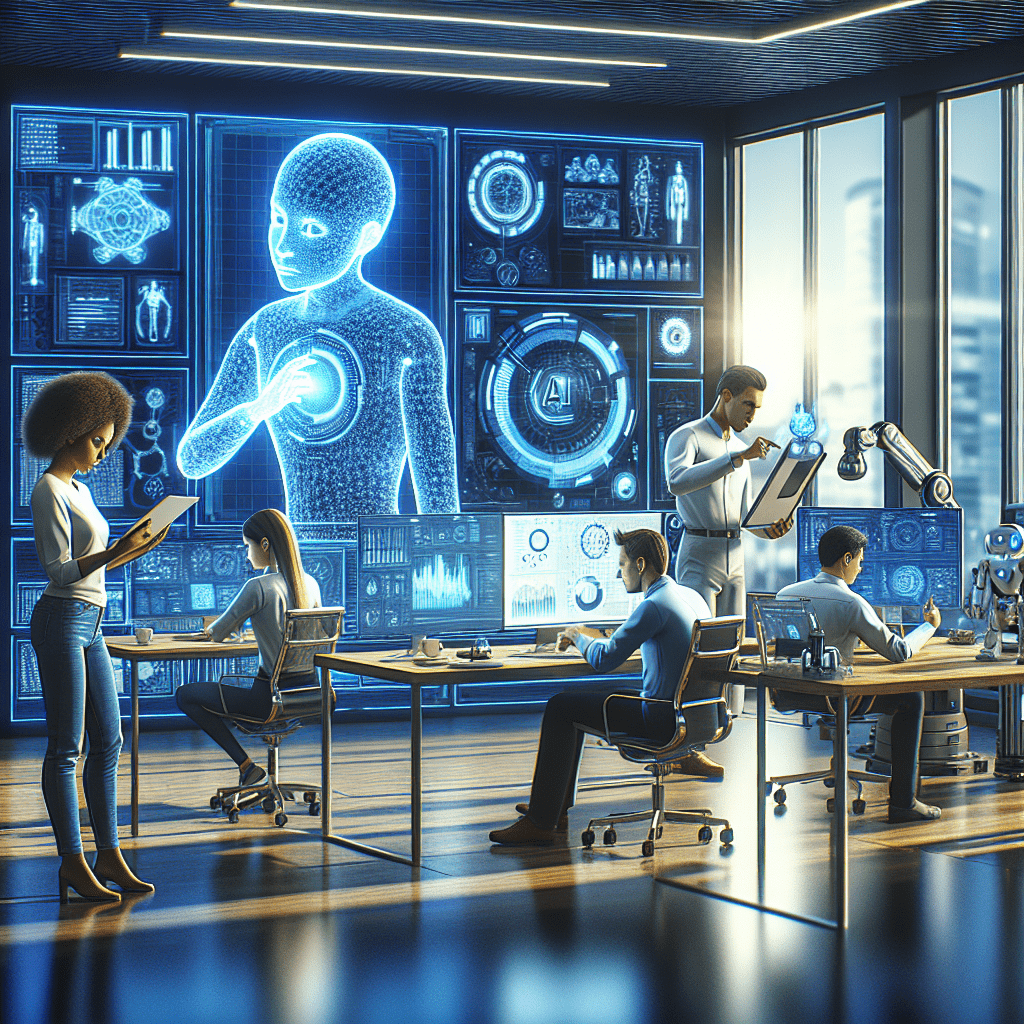Artificial Intelligence (AI) is transforming the workplace in numerous ways, from automating routine tasks to enabling more sophisticated data analysis. While AI offers many benefits, such as increased efficiency and productivity, there are also significant challenges that come with implementing this technology in the workplace.
The Benefits of AI in the Workplace
There are numerous benefits to implementing AI in the workplace. Some of the key advantages include:
- Increased Efficiency: AI can automate repetitive tasks, allowing employees to focus on more strategic and creative work.
- Improved Decision-Making: AI can analyze large amounts of data quickly and accurately, helping organizations make more informed decisions.
- Enhanced Customer Service: AI-powered chatbots can provide instant responses to customer inquiries, improving customer satisfaction.
- Cost Savings: AI can reduce operational costs by streamlining processes and reducing the need for human intervention.
- Personalized Experiences: AI can analyze customer data to deliver personalized experiences and recommendations.
The Challenges of Implementing AI in the Workplace
While AI offers many benefits, there are also challenges that organizations must address when implementing this technology. Some of the key challenges include:
- Job Displacement: AI has the potential to automate jobs that are currently performed by humans, leading to job displacement.
- Data Privacy and Security: AI systems require access to large amounts of data, raising concerns about data privacy and security.
- Training and Skills Gap: Implementing AI requires employees to learn new skills, which can be challenging for some organizations.
- Ethical Concerns: AI raises ethical concerns around issues such as bias in algorithms and surveillance.
- Integration with Existing Systems: Integrating AI systems with existing technologies can be complex and time-consuming.
Conclusion
AI offers numerous benefits for organizations, from increased efficiency to enhanced decision-making. However, implementing AI in the workplace also comes with significant challenges, such as job displacement and data privacy concerns. Organizations must carefully consider these challenges and develop strategies to address them effectively. By doing so, organizations can leverage the power of AI to drive innovation and growth in the workplace.
FAQs
What are some common applications of AI in the workplace?
Some common applications of AI in the workplace include chatbots for customer service, predictive analytics for forecasting, and robotic process automation for streamlining operations.
How can organizations address the job displacement caused by AI?
Organizations can address job displacement caused by AI by retraining employees for new roles, focusing on tasks that require human creativity and emotional intelligence, and implementing policies to support displaced workers.
What are some ethical considerations organizations should keep in mind when implementing AI?
Some ethical considerations organizations should keep in mind when implementing AI include ensuring transparency in AI algorithms, avoiding bias in decision-making processes, and protecting data privacy and security.
Quotes
“The question of whether a computer can think is no more interesting than the question of whether a submarine can swim.” – Edsger Dijkstra
“Artificial intelligence will reach human levels by around 2029. Follow that out further to, say, 2045, we will have multiplied the intelligence, the human biological machine intelligence of our civilization a billion-fold.” – Ray Kurzweil
#Workplace #Benefits #Challenges #Implementing #Artificial #Intelligence


